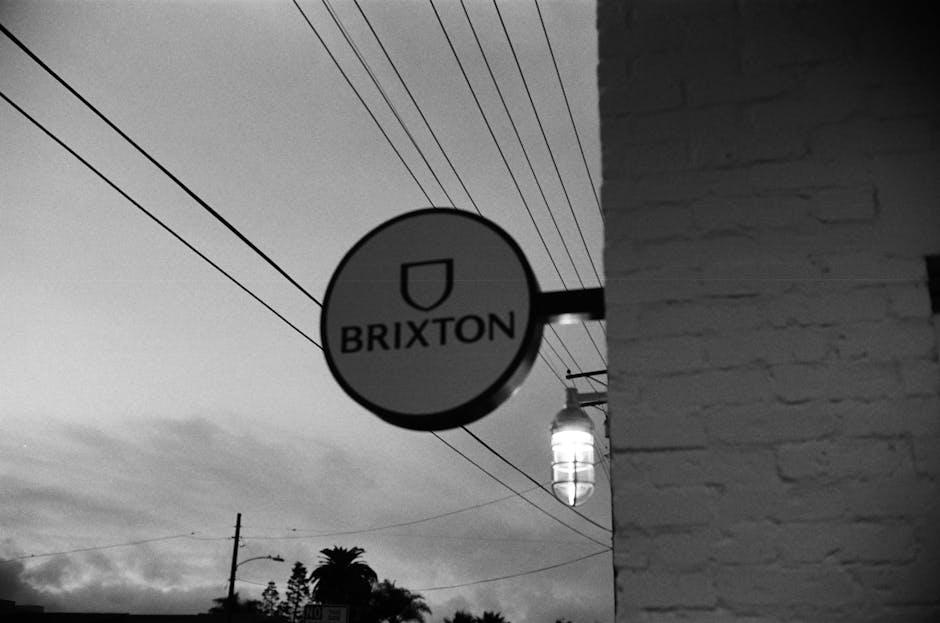In the vibrant tapestry of London’s diverse neighborhoods, Brixton stands out as a cultural melting pot where history, art, and community converge. However, beneath the colorful facades and bustling markets lies a subtle yet significant puzzle for many: the pronunciation of its name. Join us on a linguistic journey as we unravel the enigma of Brixton’s pronunciation, blending history with phonetics to uncover the true essence of this iconic South London district.
Table of Contents
- Exploring the Correct Pronunciation of Brixton
- Mastering the Tricky Sounds of Brixton
- Expert Tips for Perfecting Your Brixton Pronunciation
- Understanding the Cultural Significance of Pronouncing Brixton
- Navigating the Dialect Challenges of Saying Brixton
- Q&A
- In Conclusion


Exploring the Correct Pronunciation of Brixton
When it comes to pronouncing ”Brixton,” there are different schools of thought on the correct way to say it. Understanding the nuances of its pronunciation can add depth to your vocabulary and help you communicate more effectively.
Here are some key points to consider when exploring the pronunciation of “Brixton”:
- **British Pronunciation**: In the UK, “Brixton” is commonly pronounced as /ˈbrɪksən/, emphasizing the first syllable.
- **American Pronunciation**: In the US, you might hear it as /ˈbrɪkstən/, with the emphasis on the second syllable.


Mastering the Tricky Sounds of Brixton
can be quite a fun linguistic challenge. To truly blend in with the vibrant community and nail the local accent, it’s essential to pay attention to the nuances of pronunciation. Here are some tips to help you navigate the distinctive sounds of Brixton like a seasoned local:When tackling the word “market” in Brixton, emphasize the “ar” sound as “mah-ket” instead of “mar-ket.” This slight adjustment will immediately make your speech more authentic and recognizable in this lively neighborhood.
Another common word to master is “jumper.” In Brixton, make sure to pronounce it as “jamp-ah” rather than “jum-per.” This subtle alteration captures the essence of the local dialect and helps you connect with the community on a deeper level.


Expert Tips for Perfecting Your Brixton Pronunciation
In the vibrant streets of Brixton, mastering the local pronunciation adds a touch of authenticity to your conversations. Dive into the nuances of the Brixton dialect with these expert tips that will have you blending in seamlessly with the locals.Uncover the Secrets of Brixton Pronunciation:
- Embrace the rhythmic cadence of Brixton by elongating vowel sounds for that distinctive flair.
- Pay homage to the area’s cultural heritage by rolling your Rs with finesse, adding a melodic lilt to your speech.
- Infuse your words with the energetic spirit of Brixton by emphasizing the final consonants, creating a dynamic and engaging dialogue.
Explore the Melodic Variations of Brixton English:
- Experiment with the subtle shifts in pitch and tone to capture the expressive nature of Brixton pronunciation.
- Immerse yourself in the rich tapestry of sounds that define Brixton English, blending tradition with contemporary influences.
- Master the art of intonation to convey emotion and emphasis, breathing life into your words with each syllable.


Understanding the Cultural Significance of Pronouncing Brixton
In the vibrant streets of Brixton, a melting pot of cultures intertwines to create a tapestry of diversity that transcends mere words. The pronunciation of “Brixton” echoes with historical significance, encapsulating a rich heritage that resonates through time. Delving into the nuances of how each syllable is uttered reveals a deeper connection to the community’s past, present, and future.
Every intonation of “Brixton” carries with it a story – a narrative woven through the fabric of the neighborhood’s evolution. From the Jamaican influences in the lively markets to the British undertones in the local pubs, the pronunciation of “Brixton” serves as a bridge between tradition and modernity. Embracing the cultural significance embedded in every syllable spoken is a tribute to the spirit of unity that defines this dynamic corner of London.

Navigating the Dialect Challenges of Saying Brixton
Exploring the intriguing world of dialects can lead you on a linguistic adventure full of surprises. When it comes to saying “Brixton,” a vibrant area in London, navigating the subtle nuances of pronunciation can be a delightful challenge. Embracing the local way of saying “Brixton” not only enhances your language skills but also brings you closer to the heart of this diverse community.
In the tapestry of accents and dialects, mastering the pronunciation of “Brixton” requires a keen ear and a playful spirit. **Emphasizing the ‘i’ sound** while gracefully rolling the ‘r’ adds a touch of authenticity to your speech. Engage with locals, listen attentively, and let the melodic rhythm of the word guide you as you immerse yourself in the colorful tapestry of Brixton’s vibrant culture and rich history.
Q&A
**Q&A: Demystifying the Art of Brixton Pronunciation**Q: How do you correctly pronounce “Brixton”?
A: The neighborhood of Brixton in South London is pronounced as “BRICKS-tun.” The emphasis is on the first syllable, and the “o” sound is short like in “brick.”
Q: Why is the pronunciation of Brixton often a subject of confusion?
A: The unique and diverse cultural heritage of Brixton has led to different interpretations of its pronunciation over the years, contributing to the confusion surrounding its correct articulation.
Q: Are there any common mispronunciations of Brixton that should be avoided?
A: One common mispronunciation to steer clear of is saying “BRIKS-ton” or emphasizing the second syllable too much, which can lead to a deviation from the authentic pronunciation.
Q: How important is it to pronounce Brixton correctly?
A: Pronouncing Brixton accurately not only demonstrates respect for the community and its history but also helps in fostering clear communication and understanding when referring to this vibrant area.
Q: Any tips for mastering the pronunciation of Brixton?
A: One effective tip is to break down the word into syllables and practice saying it slowly at first, focusing on getting the “BRICKS-tun” rhythm right before gradually picking up speed for a more natural delivery.





0 Comments